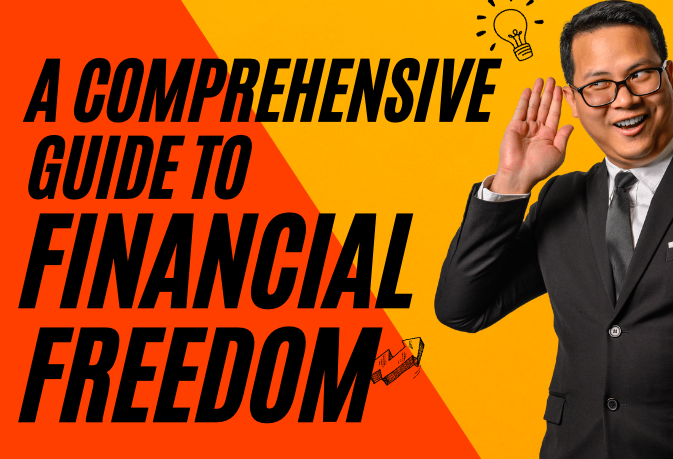- Creating a budget is essential for achieving financial freedom and should be tailored to the individual’s specific needs and objectives.
- Increasing incoming cash flow can be done by getting a second job, starting a side hustle, or taking a new career path.
- Building an emergency fund is critical in order to protect finances from unexpected expenses or events.
- With dedication and commitment to these steps, anyone can achieve true financial independence.
Financial freedom is a goal that many young adults strive for. It can feel overwhelming to take the steps necessary to achieve financial stability, but it doesn’t have to be. This comprehensive guide will discuss best practices and proven strategies to help you reach financial freedom and boost your financial standing.
Contents
Creating a Budget
The first step in achieving financial freedom is creating a budget. This will be the foundation upon which all your other financial decisions rest. A budget should be tailored specifically to the vital aspects of your life, so take some time to think about how you want to allocate your funds. Below are some ideas for budget categories:
Income
Your income is the starting point of your budget. List the sources of income you receive, such as wages, investments, or other financial gains. If you have multiple jobs or investments, make sure to list each separately so you can accurately keep track of your finances.
Living Expenses
Whether it’s rent, mortgage payments, utilities, or groceries, living expenses must be considered. Calculate the average cost of all your necessary living expenses and make sure to budget a certain amount each month towards them.
Savings
No matter your current financial situation, it’s essential to save money. Aim to budget a certain percentage of your income each month towards savings. This will help you in the long run and build your financial cushion.
Debt Repayment
If you’re already dealing with debt, it’s crucial to prioritize repayment. Even small amounts will help reduce your debt and can add up quickly over time. This will also improve your credit score, opening doors to more financial opportunities.
Increasing Incoming Cash Flow
Consider increasing your cash flow if you’re having trouble fitting everything into your budget. There are many ways to make extra money, including the following:
Getting a Second Job
If your current income isn’t enough to meet your budget and savings goals, getting a second job may be an option. This can be a great way to boost your income while keeping your current job.
However, you must be careful to consider the time and energy a second job requires. Make sure you have enough hours to devote both to your job and to yourself. It’s also important to let your current employer know about your decision. This way, you can avoid conflict of interest against your current job.
Starting a Side Hustle
A side hustle can be an excellent way to make some extra cash if a second job isn’t feasible. Brainstorm ideas and start small to build up your side business. Freelancing, creating digital products, or consulting are all viable options.
You can also look for short-term projects or gigs on sites like Flexjobs or Upwork. This way, you can start making money quickly and easily without a huge time commitment.
Taking a New Career Path
Sometimes, no matter how hard you work, your current career might not be enough to get you where you want to be. If this is your case, consider exploring different paths and find the one that aligns with your skills and interests.
Today, high-paying opportunities are available to those in the Science, Technology, Engineering, and Mathematics (STEM) fields. STEM strand jobs offer competitive salaries and job security, making it an excellent option for those looking to increase their income.
Building an Emergency Fund
Having cash saved up in case of an unexpected expense or event (such as an illness or job loss) can help protect your finances from being completely wiped out by one significant expense. Depending on your lifestyle, consider saving anywhere from three to six months’ worth of living expenses to ensure that you are ready for any emergency. You can also look into high-yield savings accounts to earn interest on emergency funds.
Nonetheless, it’s crucial to ensure that your emergency fund is easily accessible. This will ensure that you have access to the funds in an emergency.
Achieving financial freedom is within reach for young adults with the right approach. By following these best practices, they can ensure successful financial stability throughout their lives. With dedication and commitment to these steps outlined above, anyone can achieve true financial independence.

I am Arjun Kumar. I am the owner and administrator of Finance Gradeup. I have completed my education in Arts & Technology. Arjun Kumar usually has interests in playing games, reading and writing. He was a brilliant student during his college days. He also works for many private companies, but the main interest of Arjun Kumar is digital marketing. He thinks that reading is a must before providing any quality information to his readers. You can find Arjun Kumar on much social media handles online, or you can learn more about him in about us page.




